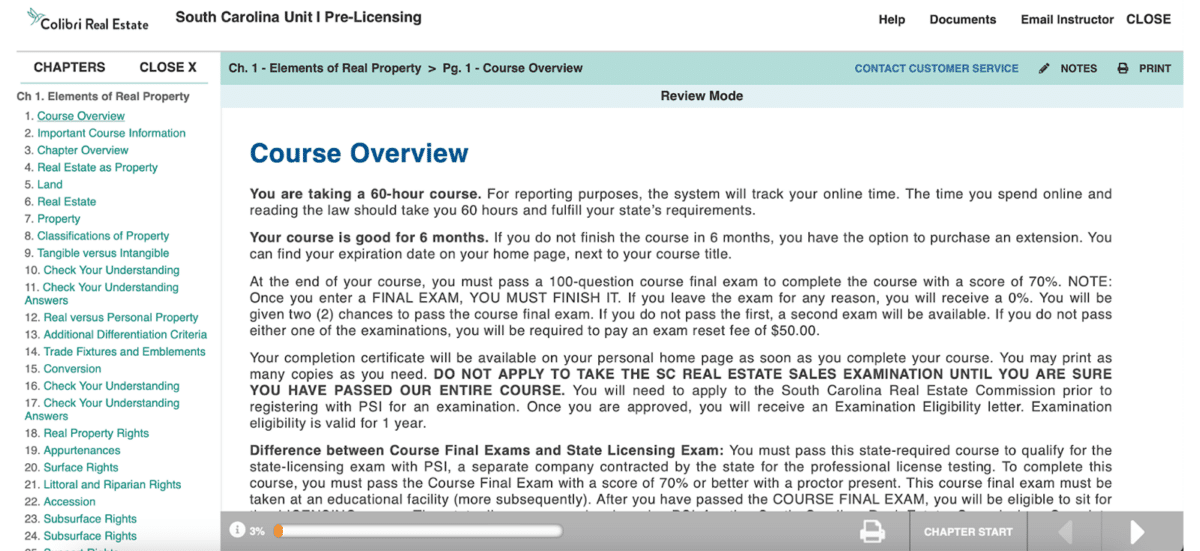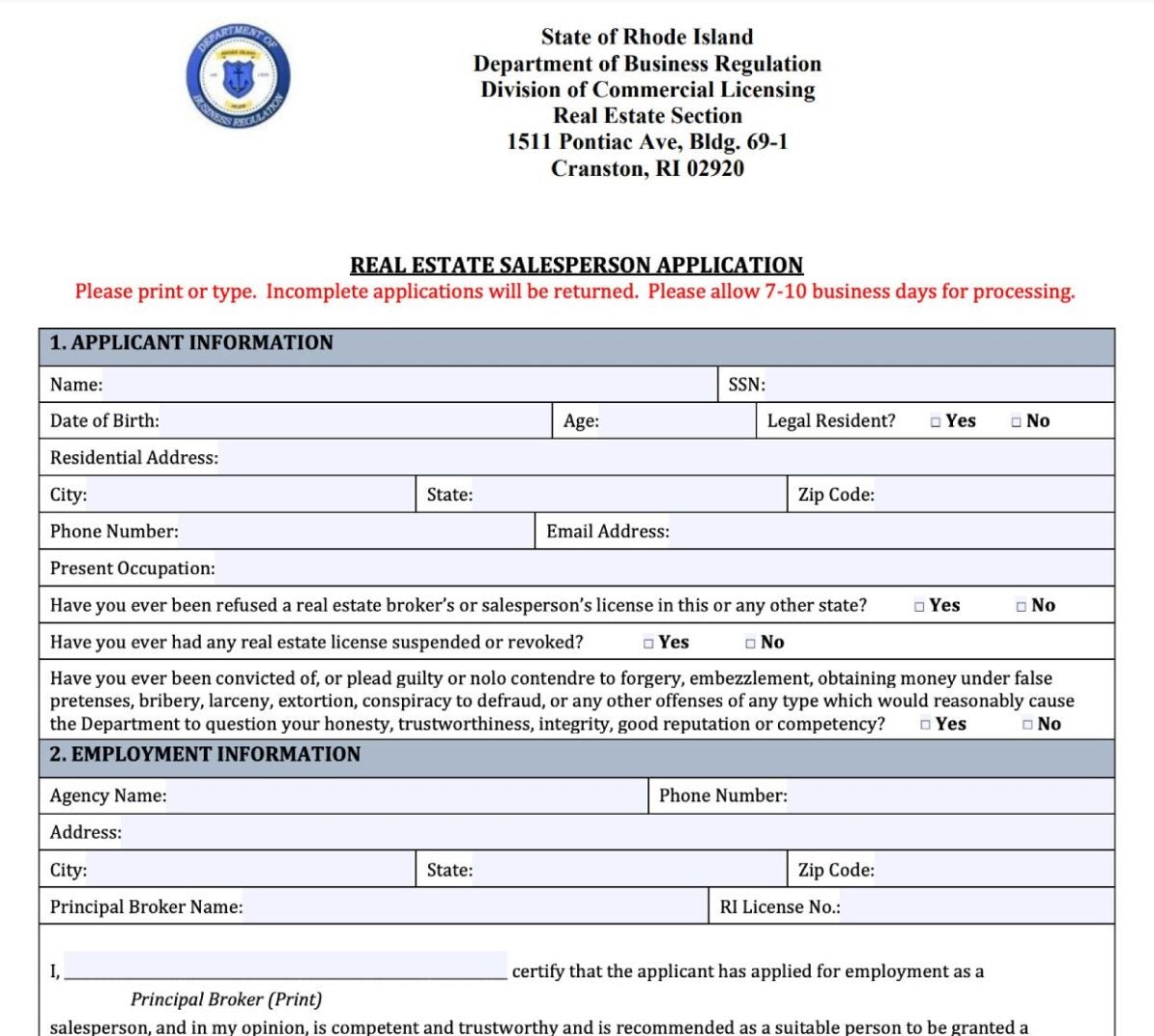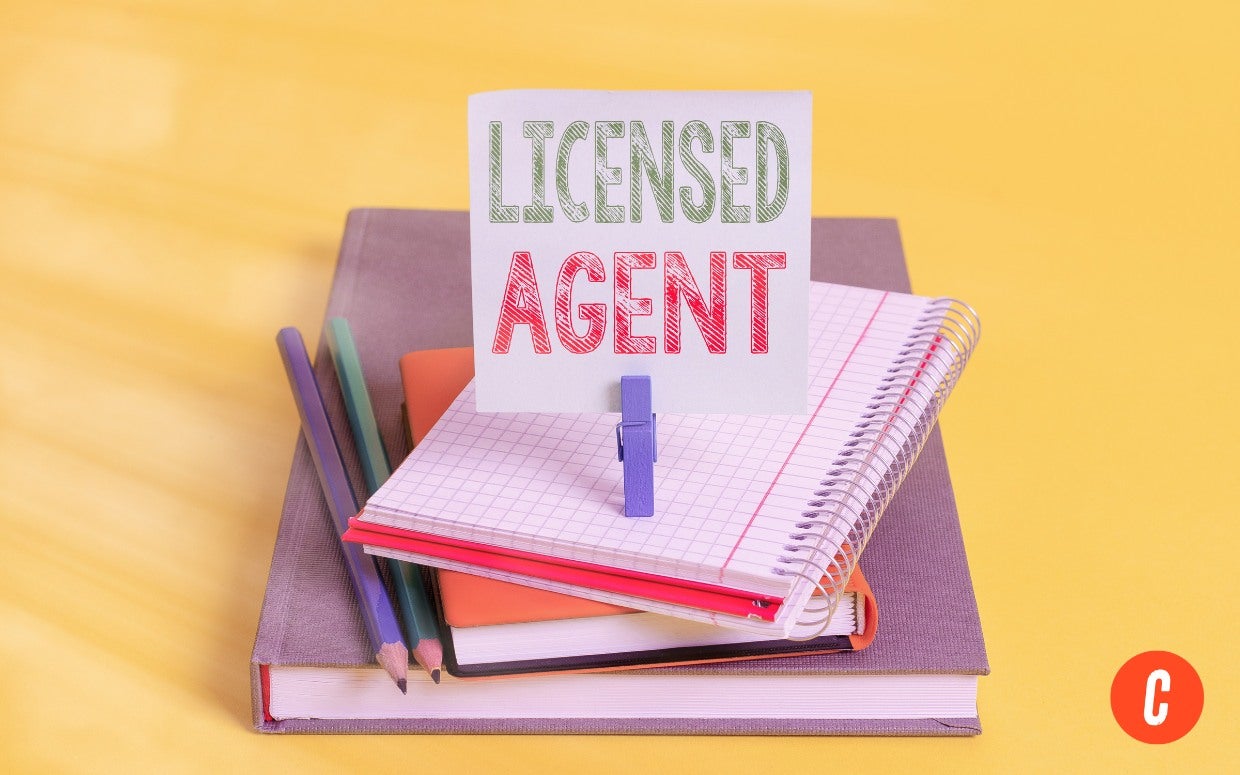Thinking of becoming a real estate agent and wondering how to get a real estate license? I’m here to guide you through each task related to getting your real estate license and gather your state’s must-know information. Let’s start with the steps involved and move on to the costs, time commitment, helpful links to The Close’s state-specific guides and best school articles, tips on passing the exam, and FAQs—in other words, everything you need to get your real estate license. 😉🚀
What Is a Real Estate License?
A real estate license is a state-issued permit that allows agents and brokers to assist in buying and selling homes. It ensures they have the necessary training and authorization and have passed a test, enabling them to guide clients through negotiations and paperwork. This license builds trust, as clients know they work with knowledgeable and vetted professionals.
Steps to Get Your Real Estate License
Let’s get started! Though the process might vary slightly from state to state, here’s a basic outline of what you must do to learn how to obtain a real estate license.
1. Determine Your State’s Education Requirements
-
Cost: Free
-
Time: Five minutes
-
Helpful resource: The Close Look-up Tool (below)
Generally, states require that applicants for a real estate license meet the following requirements:
- Be 18 years of age or older
- Be legally allowed to work in the United States
- Complete the required amount of prelicensing education hours
- Have no pending criminal indictments against you
- Have no criminal convictions for violent or home invasion-related offenses
These specifics depend on each state (Alaska, for example, requires applicants to be 19 years old), and the number of education hours varies quite a bit. Pick your state from the map below to discover how many hours of prelicensing education you need, and check out the links to specific state guides to dive deeper.
2. Complete a Prelicensing Course
-
Cost: Between $99 and $1,100, depending on your state
-
Time: Between 40 and 180 class hours, depending on your state
-
Helpful resource: Best Online Real Estate Schools
The next step on how to get a real estate license is to complete the prelicensing education hours your state requires. You can take these classes in a regular classroom setting or go for an online program. Online courses are generally the way to go because they’re usually cheaper and way more convenient—plus, you’ll learn at your speed whenever it fits into your schedule. Remember that some states require you to attend in-person or live online classes, so you can’t breeze through the hours at your own pace.
What You’ll Learn in Real Estate School
Generally, you’ll learn plenty of terms and definitions, maybe even ones you hear often but aren’t exactly sure what they mean. You’ll also get a crash course on important legislation, legal theories, and usually a little history and sociology. At the end of your prelicensing courses, you will have a solid understanding of the laws and regulations that govern real estate both at a federal and state level.
How to Choose a Real Estate School
Picking the right real estate school is a big deal, and there are a few things you should think about before making your choice.
- Cost: Is the course package of your choice within your budget?
- Accreditation: Is your chosen school recognized by the state where you want to work?
- Class format: Are you looking for a traditional classroom setting where you can easily approach your instructors and peers during classes? Or an online, livestream class with flexibility and access to instructor support? Or purely online courses where you need to be more self-directed?
- Refund policy: Some schools provide a refund option for students within a specific time frame, or they guarantee that you’ll pass the exam if you meet certain criteria. Ensure you know the refund policy—if there is one. Also, note that courses often have an expiration date, so you might only have access to the material for six months.

One of my favorite online providers is Colibri Real Estate. They make it easy to get your prelicensing classes, with options available in almost every state. Plus, they offer helpful packages that include exam prep and a Pass or Don’t Pay guarantee. If you’re unsure where to start with your prelicensing education, don’t hesitate to chat with one of their enrollment advisers—they’re there to help!
Use Promo Code: TheClose40 to save 40%
3. Prepare for Your State Exam
-
Cost: Varies, usually about $99
-
Time: One to two weeks
-
Helpful resource: 7 Free Real Estate Practice Exams + 7 Exam Hacks
Once you finish your real estate prelicensing course, it’s time to take the state exam. You’ll need to memorize definitions, understand legal concepts, and do some math. Knowing your state’s rules and the national real estate laws is important. The exam is multiple-choice, and you’ll probably just have a basic calculator and scratch paper to work with.
Even if you’re confident, it’s wise to practice with exam prep materials like flashcards and practice tests, which top online real estate schools often provide. Buy a prelicensing package that includes exam prep. If that’s not an option, choose a cheaper package without the exam prep and grab extra courses or study materials. Here are some of our top picks:
(+ Promo Codes) | |||
|---|---|---|---|
| They offer unlimited practice exams, a free initial assessment of your strengths, and ways to track your mastery of each topic. | TheClose35—Save 35% | ||
| More than 15 full-length practice tests + a great prelicensing and test prep package if you still need to log class hours. | TheClose40—Save 40% | ||
| The exclusive QBank platform allows you to create your custom practice tests based on the areas you need to work on. | Kapre5—Save 5% | ||
| The most affordable option and a mobile-friendly platform for test preppers on the go. |
4. Get Fingerprints & Background Check
-
Cost: Varies by state, usually $15 to $80
-
Time: One to three hours
-
Helpful resource: IdentoGO and IdentoGO Fingerprinting Service
All states require fingerprints and a background check to obtain a real estate license. About 15 states do not require fingerprints, but they will still conduct a background check based on the application. Applicants must get their fingerprints taken at a local law enforcement agency or a Livescan provider like IdentoGO, with fees ranging from $15 to $80. The fingerprints are submitted to state and national databases to provide a comprehensive background review, including any criminal history.
5. Pass Your State’s Real Estate Exam
-
Cost: Varies by state, usually $30 to $80
-
Time: Around three hours
-
Helpful resource: How to Pass the Real Estate Exam: Top 13 Tips for Success
It’s time to tackle your licensing exam once you’ve wrapped up your state’s prelicensing requirements and hit the books with practice tests and flashcards. Here are some quick tips to get you ready:
- Answer every question
- Answer the easy questions first
- Eliminate wrong answers
- Look at the question for clues
- Predict the answer
- Remember, there is only one correct answer
- Realize the test is pass-fail, and you don’t need to ace it!
The exam format varies by state, but most now offer a computer-based test that can be taken online or in person. You can find details about your state’s exam and nearby testing sites on your state’s licensing website or our state guides. If you’re feeling nervous, remember that many people do. Prepare with our free practice exam and discover tips to help you ace your real estate exam.
6. Register Your Real Estate License With Your State
-
Cost: Varies by state, typically less than $150
-
Time: 30 minutes to complete paperwork, one to two weeks for confirmation
Once you’ve passed your state’s licensing exam, the next step is to apply to your state’s Real Estate Commission. You’ll need to fill out an application with some basic info like your name, address, birthday, background details, and info about your real estate education and sponsoring brokerage. Most states let you apply online through a portal, but if that’s not an option, you’ll have to send in a paper application.

When you’re putting together your application, you must include a few things: an application fee, certificate of completion from your real estate school, fingerprints and background check, proof of a passing exam score, and explanations of any criminal record. Just so you know, the application fee varies quite a bit—it’s about $45 in Colorado but can go up to $245 in California.
7: Find a Sponsoring Brokerage
-
Cost: No cost
-
Time: One to two weeks
-
Helpful resource: What’s the Best Real Estate Company to Work For?
The last step in becoming a real estate agent is picking a brokerage to work with. Choosing one that fits your style and what kind of real estate you want to focus on is really important. Before making your choice, be sure to check out these things:
- Figure out what type of brokerage you want to go after.
- Decide if you want to work solo or team up with a real estate crew.
- Look into how commission splits work.
- Check out how each real estate company is seen in the market.
- Think about what kind of mentoring and training they offer.
- Consider company culture, commission structure, what fees are covered, marketing policies, and training and mentoring.
Each brokerage has its strengths and weaknesses, so be sure to research and interview the brokerage as much as they interview you. Ask plenty of questions, reach out to other agents, and see if you can picture yourself as part of that team.
🎉 That’s the final step! 🎉 Now you know how to get a realtor license.
How Long Does It Take to Get a Real Estate License?
Getting a real estate license can be pretty quick, sometimes taking just around six weeks, but how long it takes can depend on the rules in your state for what education you need. Here’s a quick look at the Texas, California, and New York timeline.
|
|
|
|
|
How Much Does It Cost to Get a Real Estate License?
Most applicants spend between $1,000 and $1,600 to cover everything, like the prelicensing course, study materials, exam fee, background check, application fees, and dues. However, the costs vary greatly from state to state. Here’s a closer look at the costs involved, with some example prices for Texas, California, and New York.
FAQs
Is it hard to get a real estate license?
No. Obtaining your real estate license is very straightforward. All you need to do is devote some time and effort to fulfilling your prelicensing education requirements, study for and pass the exam, and then register your license with your state.
Even for those who don’t have a business background, have limited sales experience, or struggle with standardized tests, getting a real estate license is easy. There are no education prerequisites, the age requirement is low, and the regulations specific to your state should be clear and easy to follow. Real estate is unique in that there is a low barrier to entry and limitless potential for professional success.
Is getting a real estate license worth it?
Yes. The personal and financial upsides to real estate can be huge if you’re willing to put in the effort to build a business. Apart from the financial opportunities, becoming a real estate professional gives you personal freedom and control over when you work, how much you work, and how you want to structure your leisure time.
As a real estate agent, you are your own boss, which means you can take as much or as little vacation time as you’d like. Real estate agents love this field for the independence and control over their success that it provides. If you want to test drive a real estate career before quitting your day job, consider starting part-time first.
How much does a real estate agent make?
As of January 26, 2024, the average salary for a real estate sales agent in the United States is $46,014, with a range of $44,951–$58,528 and a median work week of 35 hours. However, real estate agents are typically paid a commission, which can vary widely depending on location, disparate housing market, competition, brokerage splits, and hard work.
What’s the difference between a broker & an agent?
A real estate agent has met their state requirements and been awarded a license to conduct real estate business. This means they help clients buy and sell real property under the supervision of a broker.
A real estate broker (sometimes called a managing or supervising broker) is a real estate agent who has completed additional training, education, and licensing requirements. A broker can operate independently or hire agents to form a brokerage.
A Realtor is a card-carrying member of the National Association of Realtors (NAR). They have paid their annual dues, adhere to the NAR’s strict code of conduct and ethics, and may or may not have an active real estate license. There are currently more than 1.5 million NAR members.
What is real estate reciprocity & how do I get it?
Reciprocity is an agreement between states that allows real estate agents to bypass some or all of the prelicensing education requirements when seeking a real estate license in that state. For example, South Carolina and Georgia have full reciprocity, so an agent licensed in Georgia can work across the state line simply by passing the South Carolina exam and filing with that state.
However, real estate reciprocity isn’t universal. Some states don’t offer any reciprocity agreements at all, while some only do with select states.
Bringing It All Together
Real estate pros wear a ton of hats. We’re marketers, property whizzes, contract ninjas, negotiation gurus, community cheerleaders, and even a bit of a therapist on the side. But it kicks off with that all-important question: how to get a real estate license. Seriously, getting your real estate license is your golden ticket to a fresh and exciting real estate career. And don’t worry, we’re here to back you up and celebrate all your wins along the way! Make sure you don’t miss out on any cool articles or handy tips—subscribe to our newsletter and stay in the loop!









